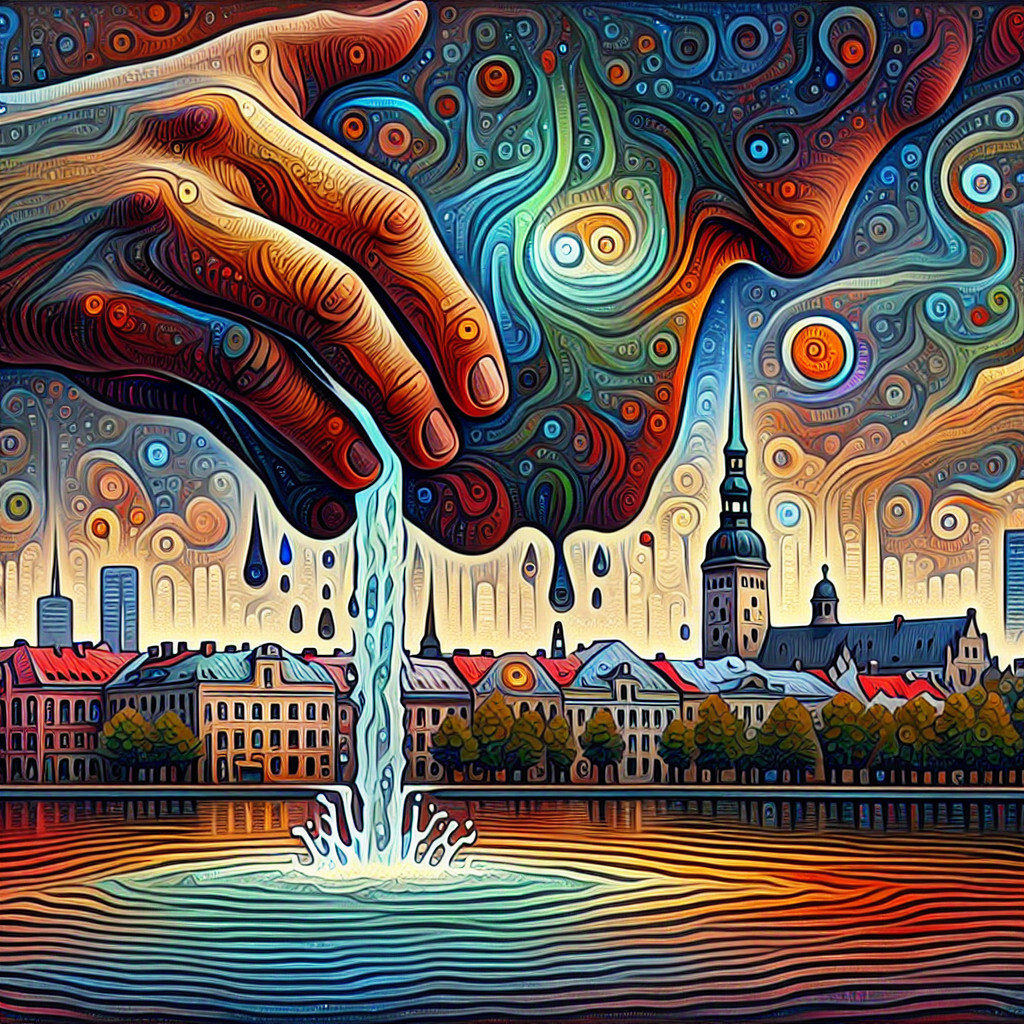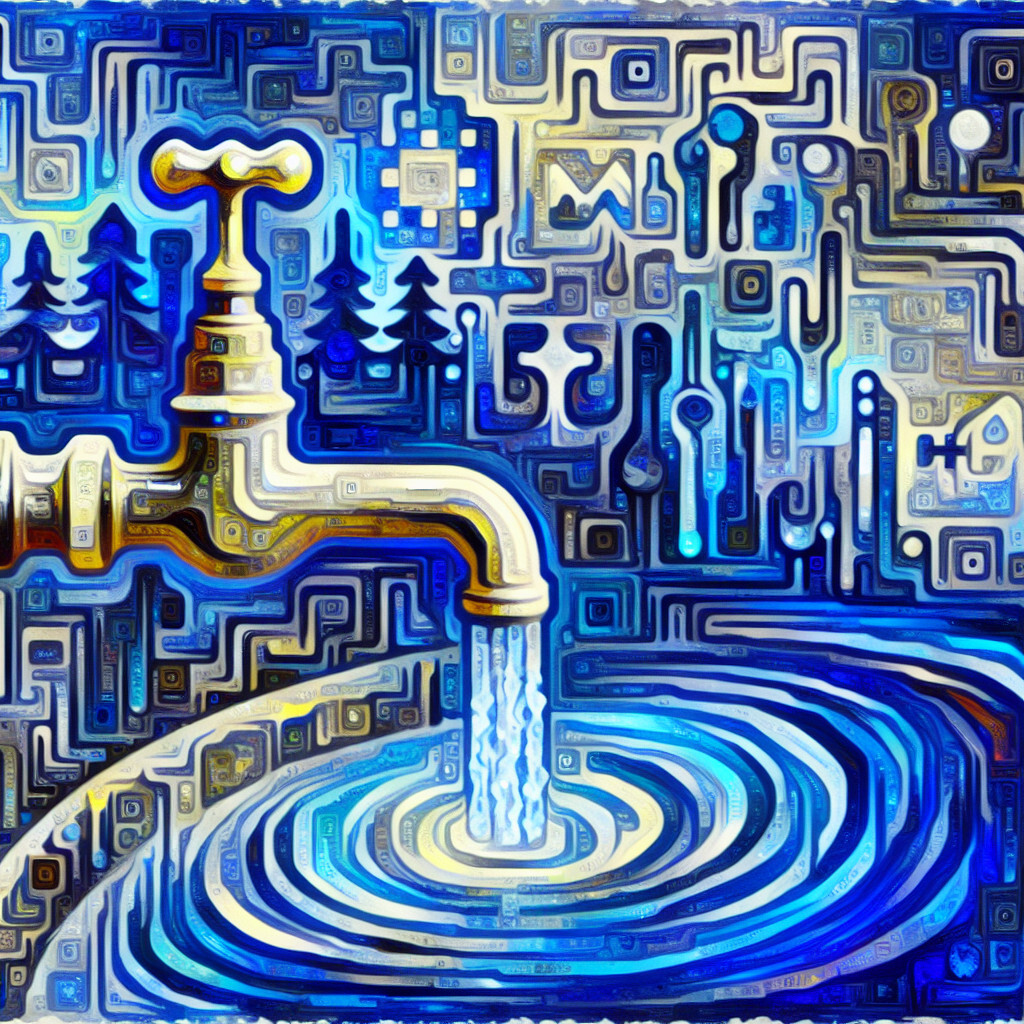-
Table of Contents
“Latvia’s Tap Water: Pure, Clean, and Safe to Drink!”
Introduction

The tap water in Latvia is generally safe to drink and meets international standards. The country’s water supply system is well-maintained, ensuring the water is clean and free from harmful bacteria or viruses. However, the quality can vary depending on the region, with some rural areas having issues with water hardness due to high mineral content. Despite this, many locals and tourists drink bottled water for their personal preference.
Understanding the Quality of Tap Water in Latvia
Latvia, a beautiful country nestled in the Baltic region of Northern Europe, is known for its rich culture, stunning landscapes, and high-quality tap water. The quality of tap water in Latvia is a topic of interest for both locals and tourists alike. This article aims to provide an in-depth understanding of the quality of tap water in Latvia, its sources, treatment processes, and safety standards.
Latvia’s tap water primarily originates from two sources: surface water and groundwater. Surface water, which includes rivers and lakes, accounts for approximately 70% of the country’s drinking water. The remaining 30% is sourced from groundwater, which is water located beneath the earth’s surface in soil pore spaces and in the fractures of rock formations.
The treatment of tap water in Latvia is a rigorous process that ensures the water is safe for consumption. The process begins with the removal of large particles and debris from the water through a process known as screening. Following this, the water undergoes coagulation and flocculation, where chemicals are added to the water to bind together the smaller particles into larger clumps, which can then be easily removed. The water is then filtered to remove any remaining particles and disinfected to kill any harmful bacteria or viruses.
The quality of tap water in Latvia is regulated by the Latvian Health Inspectorate, which sets strict standards for water quality and regularly tests the water to ensure these standards are met. These standards are based on the guidelines set by the World Health Organization (WHO), which are internationally recognized as the benchmark for water quality.
The tap water in Latvia is generally considered safe to drink. However, it’s important to note that the quality of tap water can vary depending on the location. In urban areas, where the water treatment facilities are more advanced, the tap water is typically of a higher quality compared to rural areas. In some rural areas, the tap water may contain higher levels of certain minerals, such as iron and manganese, due to the natural composition of the groundwater. While these minerals are not harmful in small amounts, they can affect the taste and appearance of the water.
Despite the high quality of tap water in Latvia, many locals prefer to drink bottled water or use water filters at home. This is largely due to personal preference and the perception that bottled water or filtered water is cleaner or safer than tap water. However, it’s worth noting that the tap water in Latvia meets all the necessary safety standards and is perfectly safe to drink.
In conclusion, the tap water in Latvia is sourced from surface water and groundwater, undergoes rigorous treatment processes, and is regulated by strict safety standards. While the quality of tap water can vary depending on the location, it is generally safe to drink. Whether you’re a local or a tourist, you can feel confident about the quality of tap water in Latvia.
The Impact of Environmental Factors on Latvia’s Tap Water
Latvia, a country nestled in the Baltic region of Northern Europe, is renowned for its rich cultural heritage, stunning landscapes, and pristine natural resources. Among these resources, water holds a significant place, particularly tap water, which is a primary source of drinking water for the majority of the Latvian population. The quality of tap water in Latvia is largely influenced by various environmental factors, which play a crucial role in determining its safety and suitability for consumption.
Latvia’s geographical location and climate significantly impact the quality of its tap water. The country is blessed with abundant freshwater resources, including rivers, lakes, and underground water reserves. The Daugava River, the largest river in Latvia, is a primary source of tap water for many cities, including the capital, Riga. The river water undergoes rigorous treatment processes before it is supplied as tap water, ensuring it meets the stringent safety standards set by the European Union.
However, the quality of tap water can be affected by seasonal variations and weather conditions. During the spring thaw and heavy rainfall, the risk of surface water contamination increases due to the runoff from agricultural lands carrying fertilizers and pesticides. These contaminants can seep into the groundwater or enter the rivers and lakes, potentially affecting the quality of tap water.
Another significant environmental factor influencing Latvia’s tap water quality is the country’s soil composition. Latvia’s soil is rich in iron and manganese, which can leach into the groundwater. While these minerals are not harmful to health in small quantities, they can affect the taste and appearance of the water, giving it a metallic taste or a slightly yellowish color.
Industrial activities and urbanization also pose challenges to maintaining the quality of tap water in Latvia. Industrial effluents and urban wastewater, if not properly treated, can contaminate water sources with harmful chemicals and microorganisms. Latvia has made significant strides in improving its wastewater treatment facilities in recent years, which has helped in mitigating this issue to a large extent.
Despite these challenges, it is important to note that the tap water in Latvia is generally safe to drink. The country has a robust water treatment and monitoring system in place to ensure the water supplied to households meets the necessary safety standards. Regular tests are conducted to check for the presence of harmful substances, and the results are made publicly available, ensuring transparency and accountability.
Moreover, Latvia’s commitment to environmental sustainability further bolsters the quality of its tap water. The country has implemented several measures to protect its water resources, including strict regulations on industrial emissions, promotion of organic farming to reduce the use of chemical fertilizers, and initiatives to preserve its forests and wetlands that act as natural filters for water.
In conclusion, while environmental factors do impact the quality of tap water in Latvia, the country’s rigorous water management practices and commitment to environmental protection ensure that the tap water remains safe for consumption. However, as with any natural resource, the quality of tap water can vary across different regions and at different times, and it is always advisable for consumers to stay informed about the water quality in their area.
Health Implications of Drinking Tap Water in Latvia
Latvia, a beautiful country nestled in the Baltic region of Northern Europe, is known for its rich culture, stunning landscapes, and high-quality tap water. However, the health implications of drinking tap water in Latvia are a topic of interest for both residents and visitors. This article aims to provide an informative and formal discussion on the subject.
Latvia’s tap water is generally safe to drink, thanks to the country’s stringent water quality standards and regular monitoring. The Latvian Health Ministry, in collaboration with the Centre for Disease Prevention and Control, ensures that the water supply meets the European Union’s Drinking Water Directive. This directive sets quality standards for water intended for human consumption, covering aspects such as microbiological parameters, chemical substances, and radioactivity.
The primary source of Latvia’s tap water is groundwater, which is naturally filtered through layers of sand and gravel. This natural filtration process removes many potential contaminants, contributing to the overall safety and quality of the water. However, it’s important to note that the quality of tap water can vary depending on the specific location within Latvia. For instance, in some rural areas, the water may contain higher levels of iron and manganese due to the local geology. While these minerals are not harmful in small amounts, they can affect the taste and appearance of the water.
Despite the generally high quality of Latvia’s tap water, there are potential health implications to consider. One concern is the presence of nitrates, primarily from agricultural runoff, which can seep into the groundwater. High levels of nitrates in drinking water can be harmful, particularly for infants and pregnant women. However, the Latvian authorities regularly monitor nitrate levels to ensure they remain within safe limits.
Another potential health concern is the presence of bacteria. Although Latvia’s water treatment processes are designed to eliminate harmful bacteria, there is always a risk of contamination, particularly in older or poorly maintained plumbing systems. It’s recommended that individuals with compromised immune systems or specific health conditions consult with a healthcare provider before consuming tap water.
Furthermore, Latvia’s tap water is typically hard, meaning it has a high mineral content. While hard water is not harmful to health, it can contribute to the build-up of limescale in appliances and can affect the taste of beverages like tea and coffee. Some people may choose to use a water softener or filter to improve the taste and prevent limescale build-up.
In conclusion, the tap water in Latvia is generally safe to drink, thanks to the country’s rigorous water quality standards and monitoring processes. However, the quality can vary depending on the location, and there are potential health implications to consider, including the presence of nitrates and bacteria. As always, individuals with specific health concerns should seek advice from a healthcare provider. Despite these considerations, Latvia’s tap water remains a reliable and safe source of hydration for the majority of its residents and visitors.
Comparative Analysis: Tap Water in Latvia vs. Other European Countries
Latvia, a small yet vibrant country nestled in the Baltic region of Northern Europe, is known for its rich culture, stunning landscapes, and high-quality infrastructure. Among the many aspects of its infrastructure, the quality of tap water in Latvia is a topic that often sparks interest, especially when compared to other European countries.
In Latvia, the tap water is generally safe to drink. The country’s water supply system is well-maintained and regulated by stringent laws to ensure the safety and health of its residents. The water is sourced from underground wells and is treated to remove any harmful substances before it reaches the taps of households and businesses. Regular testing is conducted to monitor the quality of the water, and the results are consistently within the safe limits set by the World Health Organization.
However, it’s worth noting that the taste and hardness of the tap water can vary across different regions of Latvia. In some areas, particularly in the capital city of Riga, the water may have a slightly metallic taste due to the high mineral content. This is not a health concern, but it may be less palatable to some people. In such cases, using a water filter or consuming bottled water is a common practice.
When compared to other European countries, Latvia’s tap water quality holds up quite well. For instance, in countries like Spain and Italy, it’s often recommended to avoid drinking tap water due to concerns about contamination and poor taste. On the other hand, countries like Denmark and Sweden are known for their exceptionally clean and tasty tap water. Latvia’s tap water quality falls somewhere in between these extremes. It’s generally safe and clean, but the taste may not be as pleasant as in some other European countries.
In terms of hardness, Latvia’s water is considered moderately hard. This is similar to countries like Germany and the United Kingdom, where the water contains a fair amount of minerals like calcium and magnesium. While hard water is not harmful to health, it can cause limescale build-up in appliances and may affect the taste of beverages like tea and coffee.
It’s also important to consider the environmental impact of water consumption. Latvia, like many other European countries, is making efforts to reduce the use of plastic bottles by encouraging people to drink tap water. This not only helps to reduce plastic waste but also promotes a more sustainable lifestyle.
In conclusion, the tap water in Latvia is generally safe to drink, although the taste and hardness can vary depending on the region. Compared to other European countries, Latvia’s tap water quality is quite good, with a moderate level of hardness similar to that of Germany and the UK. While the taste may not be as pleasant as in countries like Denmark and Sweden, it’s still a viable and environmentally friendly option for hydration. As always, when traveling or moving to a new country, it’s advisable to research the local water quality and make decisions based on personal preferences and health considerations.
Q&A
1. Question: Is tap water in Latvia safe to drink?
Answer: Yes, tap water in Latvia is generally safe to drink. It meets the European Union’s standards for clean drinking water.
2. Question: Does the tap water in Latvia contain any harmful substances?
Answer: The tap water in Latvia is regularly tested and does not contain harmful substances at levels that would pose a risk to human health.
3. Question: How is the taste of tap water in Latvia?
Answer: The taste of tap water can vary depending on the region in Latvia. Some people may find it has a slightly different taste due to the minerals present, but it is generally considered to be of good quality.
4. Question: Is bottled water more popular than tap water in Latvia?
Answer: While tap water in Latvia is safe to drink, many locals and tourists still prefer to drink bottled water due to personal preference or taste.
Conclusion
The tap water in Latvia is generally safe to drink and meets international standards, although the quality can vary depending on the region. In some rural areas, the water may have a different taste due to the presence of certain minerals. It is always advisable to check with local sources or use a water filter if unsure.






